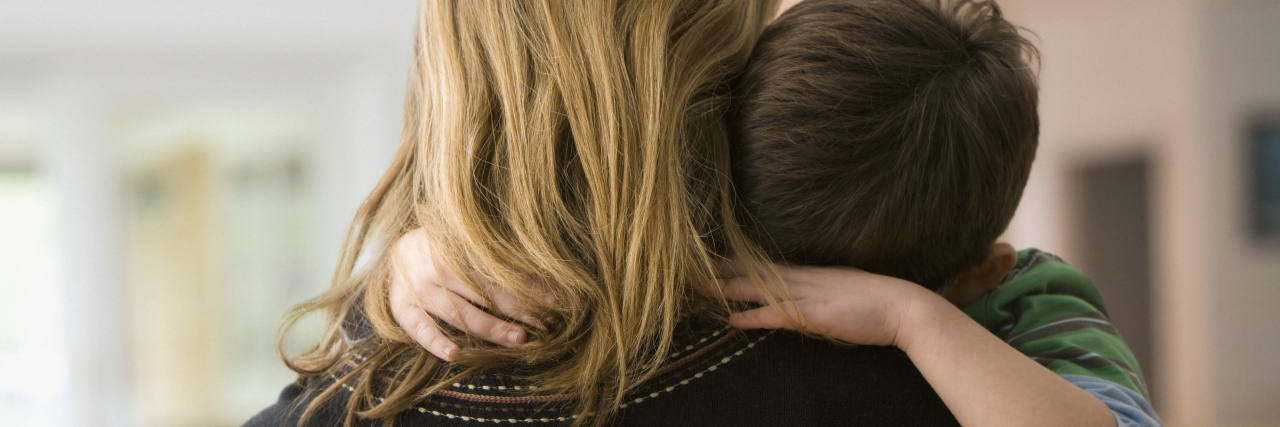What Staying at the Ronald McDonald House Is Like as a Parent of a Child With a Life-Threatening Health Condition
We were all staying at the Philadelphia Ronald McDonald House, caring for our children. Some of our children were inpatient with siblings at the house while others were getting treatments in the outpatient day clinics and were able to stay at the Ronald McDonald House in the evenings. We were a group of complete strangers who met under stressful conditions and happened upon the generosity of a home away from our own homes outside the hospital in which we spent our days.
The reason we are there is often that we’re very involved parents, advocating for our children and navigating the intense complex world of medicine. We may sit with them through their medical procedures and labs, make the decisions the doctors ask of us, and try to keep our children from freaking out (even though we are usually also freaking out on the inside).
At the end of the day, we often entrust our child into the care of the overnight nurse and residents as long as our children are well enough for us to decide that it is OK to take a break. Then we may put aside our parental guilt to actually go grab dinner and try to process everything we experienced and learned — information that basically felt like we were caught out of left field.
When you sit down to eat at the Ronald McDonald House, you are often blessed with the kindness and generosity of complete strangers giving you their time and effort to create a home-cooked meal. You may share conversation and meet other families on a similar journey.
During dinner, if you have the strength to get friendly with the people sitting with you and sharing the meal, you can usually break into conversation. Although this conversation may be about your day, it’s often not a typical conversation. Inside the house, the conversations often involve medications, treatment plans, and the old “How long have you been here?” or “Do you know when you’ll be going home?” Beyond that, you may discuss school, IEPs, and places to travel that are best suited for families with children with disabilities. Basically, new friendships are often being formed in the deepest ways — because of the health of your children. These bonds are typically forged in pain, tears, anxiety, and fear of the unknown.
But alongside all of that support our families give each other, we also may all sit together and watch our little ones run and play. They are often smiling and laughing, and they are excited to have friends and spend an hour or so playing with them before bed each night. Almost nobody looks forward to the next day — many of us live in the moment and enjoy the present because we may be walking on eggshells, never knowing what will happen next. And that’s just the point: we often don’t want to know.
We may want to hope, dream, and dance now because we usually face the unknown every minute we are at our child’s bedside. We might stare at their little faces and smile to calm their tears when they’re frightened. We may hope excessively because we can feel desperate for our children’s health to improve. It is often too painful to think of the alternative to hope. Those of us who are lucky may manifest our desires for our children’s good health into fruition. Sometimes that doesn’t work, but we often try our best with our whole hearts. We may pray, we might meditate, and we often do anything we can to get positive energy to surround our children in the hospital because with our strength and positivity, our children may also have hope. We may hope so our children may have hope.
When you’re at the Ronald McDonald House, there is a structure to your day that exists whether you like it or not. Thankfully, the coffee always seems to be brewing in the kitchen every morning when you start your day in “the house that love built.” There are often shuttles that run back and forth to the hospital throughout the day, and you usually get off the shuttle in the same location each time you use it.
The volunteers come in daily to kindly help the families residing at the house. I call staying at the house “living there” because I lived there for almost a full year. Others call their time at the Ronald McDonald House “staying there” because they come and go for treatments within a week’s time. The children, however, often consider their stay a fun time or a mini-vacation — they may feel like they get to stay in a hotel, often have dinner every night with their families, and may bond with other kids who have similar struggles.
The parents usually bond too — mostly over coffee after dinner. We may reflect on our days and discuss our struggles and provide support to each other in a way we may have never imagined we would. Just having other families to network with and utilizing their experiences to help advocate for your own child can be a lifeline to successfully getting through the most difficult times in our lives. That’s the reason the Ronald McDonald House has been nicknamed “the house that love built.”
Getty image by Jose Luis Pelaez Inc.

